Top 10 eCommerce Frameworks for eCommerce Website
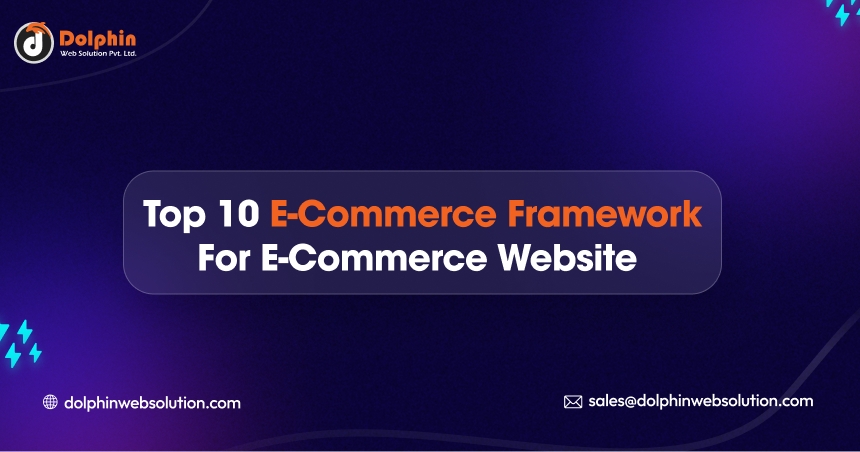
Table of Contents
Summary :
With global eCommerce sales estimated to reach $6.5 trillion in 2023, you may look for the best eCommerce frameworks. You can choose your ideal framework from open-source to proprietary, cloud-based, headless, and mobile frameworks after assessing their pros and cons. Let us understand which Framework will suit your eCommerce needs best.
With so many options available, choosing an ideal eCommerce platform may be daunting after you have found profitable eCommerce niches. How do you determine whether headless commerce or open-source frameworks suit your eCommerce website? What about proprietary, cloud-based, or mobile eCommerce frameworks?
No framework works best for every business — you must identify what works. Before choosing a framework for your eCommerce development, you must consider factors such as customer experience, security, product man, age, mobile-friendliness, plugins, e-commerce abilities, etc.
What is an eCommerce Framework?
An eCommerce framework is the type of software that developers use to build an eCommerce store. For example, BigCommerce uses a SaaS framework, while Magento uses a headless framework.
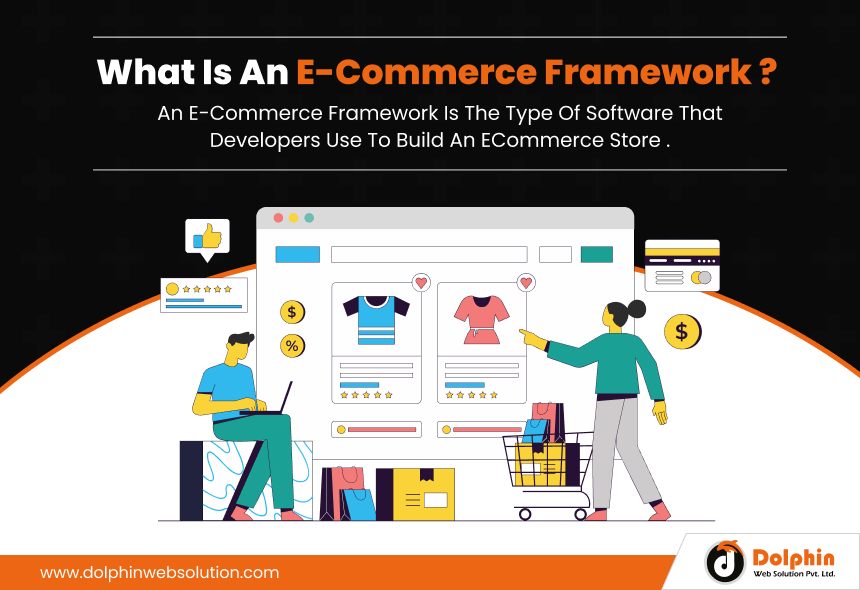
Let us understand the type of eCommerce frameworks and which eCommerce CMS will be ideal for your business.
Types of eCommerce Frameworks
Five primary styles of eCommerce frameworks, each have its pros and cons.
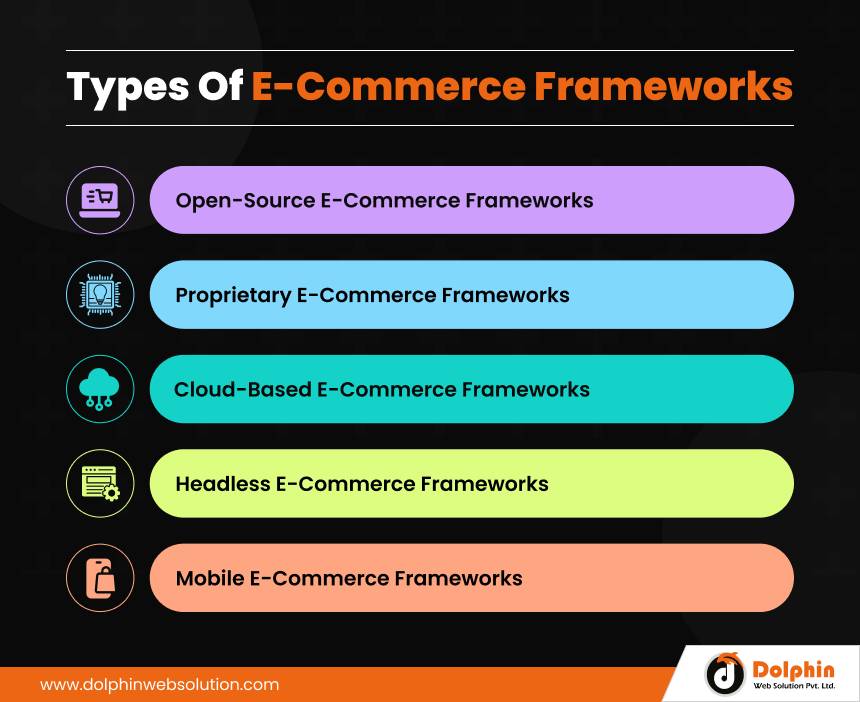
1. Open-source eCommerce Frameworks
Open source frameworks authorize users to easily access and change the source code on their software instance. Usually, the code is written in PHP.
Your developer must maintain the source code over time and provide the required customization. You will need continued cybersecurity measures to protect your shoppers and your business.
Pros:
- Engaged and experienced community of developers
- Limitless customization options
Cons:
- More complex software which requires the help of software developers throughout the life cycle of the business
- You will be responsible for security patches and installing software updates
2. Proprietary eCommerce Frameworks
Proprietary frameworks are commercial solutions owned by specific companies. They come bundled with dedicated support and several out-of-the-box advanced features. It’s easier to set up and maintain them and they require licensing fees. Shopify and BigCommerce are prominent examples of proprietary frameworks.
Pros:
- Sites are developed in a controlled environment that ensures more security
- Even non-technical users can manage the functionality
- Third-party software integration is easier
- There is more scope to grow and expand without re-platforming or expensive upgrades
- The vendor will handle the upgrades
- Able to take a substantial number of visitors as well as transactions
Cons:
- You will need the help of developers to access the code
- As there is customization involved, initial development cost can be high
3. Cloud-based eCommerce Frameworks
This framework leverages cloud computing technology to deploy applications and services successfully. They provide secure payment processing and mobile optimization features, which make them a topic choice for businesses. It also ensures effective inventory management and customer relationship management.
Pros:
- These are more cost-effective frameworks than traditional on-premises ones
- Cloud eCommerce platforms are usually highly scalable
- These platforms are accessible from anywhere if you have an internet connection
- It doesn’t tie down eCommerce operations to a physical location and ensures faster deployment of the site
- Cloud eCommerce platforms can handle large amounts of visitors and traffic at once
Cons:
- Not as customizable as headless or open-source eCommerce frameworks
4. Headless eCommerce Frameworks
This framework decouples the back-end and front-end to enable users to choose their unique front-end presentation layer. This will allow you to leverage a composable architecture and deliver an exceptional customer experience. It will allow greater control and freedom for businesses.
Pros:
- It offers flexibility to choose your front-end, such as PWAs, digital experience platforms, etc
- Decoupled back-end and front-end will allow you to work on them without affecting each other
- You can use the back-end to power several front-ends to deliver a multi-site experience
Cons:
- The cost to develop an eCommerce website using Headless eCommerce Frameworks will be high as you will be paying for front-end, back-end, and development work
- Complex architectures that require experienced developers
5. Mobile eCommerce Frameworks
Mobile eCommerce is about allowing individuals to buy and sell products or services anytime from anywhere in the world. This can be done using a mobile phone or a tablet that has proper access to the internet.
Pros:
- It offers a wider reach to your audience, as around 66% of the population across the world is using smartphones
- It provides trouble-free navigation and responsive UI, which improves the user experience
- It ensures multiple, secure payment options
Cons:
- It needs high security as hackers can gain access to your data and business
Best eCommerce Framework for eCommerce Websites
The right eCommerce framework will depend on multiple factors, including your business model, intent to scale, choice of products, expected traffic, etc. Let us look at some of the best eCommerce frameworks for eCommerce websites:
1. Magento
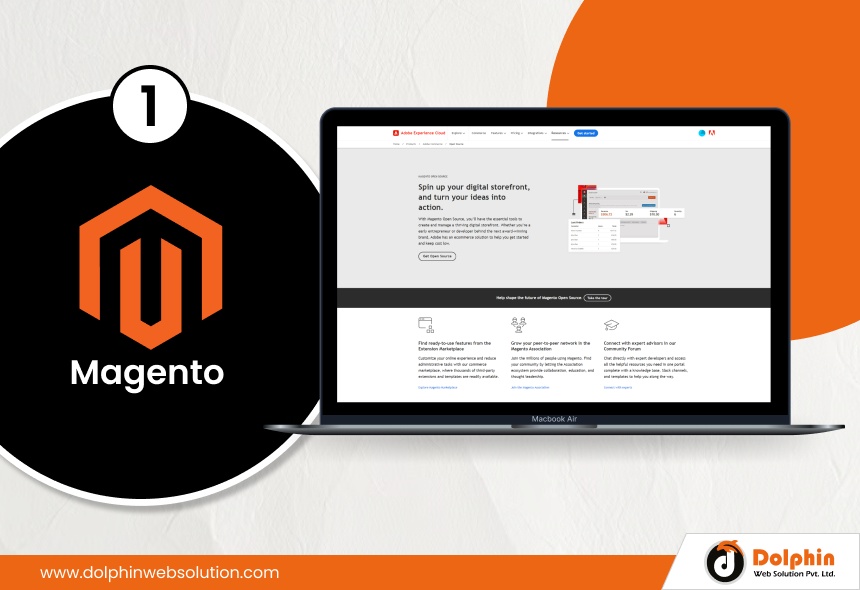
Magento is now a part of the Adobe Experience Cloud. Magento is a flexible, customizable, powerful, and scalable open-source platform used by over 2 50,000 online stores with heavy traffic and multiple products. It offers extensions, built-in analytics, API integrations, 24/7 customer support, and API integrations.
2. WooCommerce
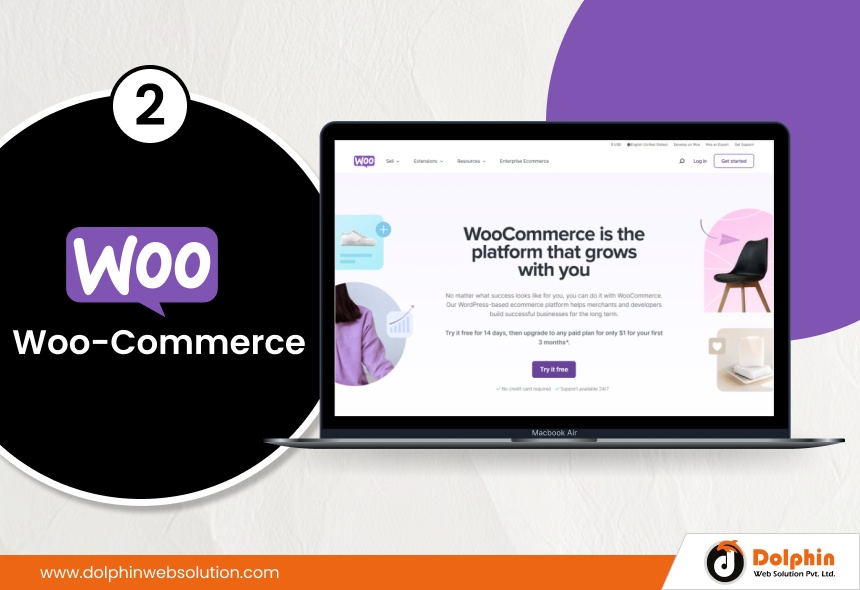
WooCommerce can be optimized for speed and is highly flexible. It comes with a wide range of paid and free themes that businesses can choose per their requirements or specifications.
It has a huge library of extensions and offers scope for great customization. It supports multiple integrations and has powerful built-in security features.
3. Shopify
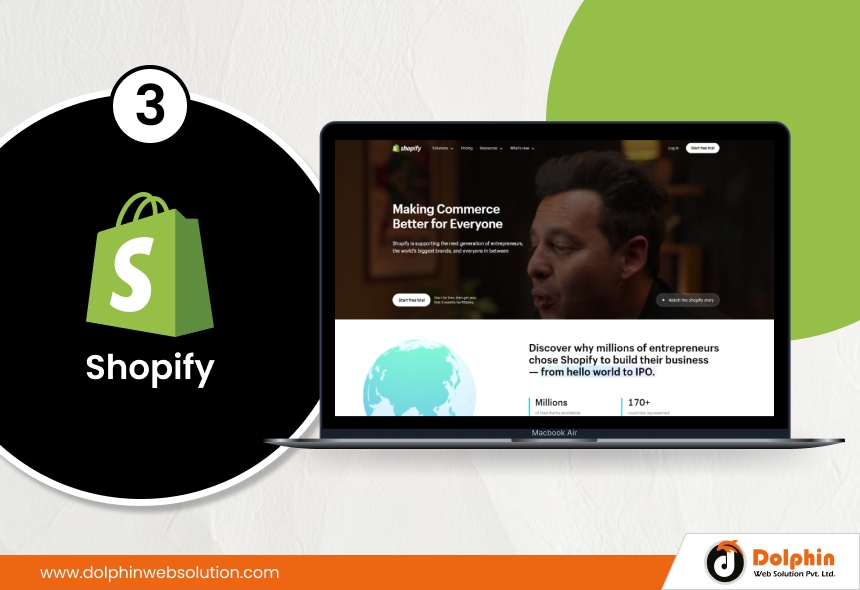
Shopify is a self-hosted SaaS platform. It provides efficient and strong features that make your store setup and maintenance effortless and quick. It has low technical barriers that ensure better convenience when developing out-of-the-box stores with basic functionalities.
It is a paid platform; you must pay a subscription if you want non-native tools. It has multiple themes and is compatible with over 4000 apps. Shopify earned $5.6 billion in 2022 and contributed $444 billion to Global Economic Activity. Over 1 million websites are currently powered by the Shopify platform.
4. BigCommerce
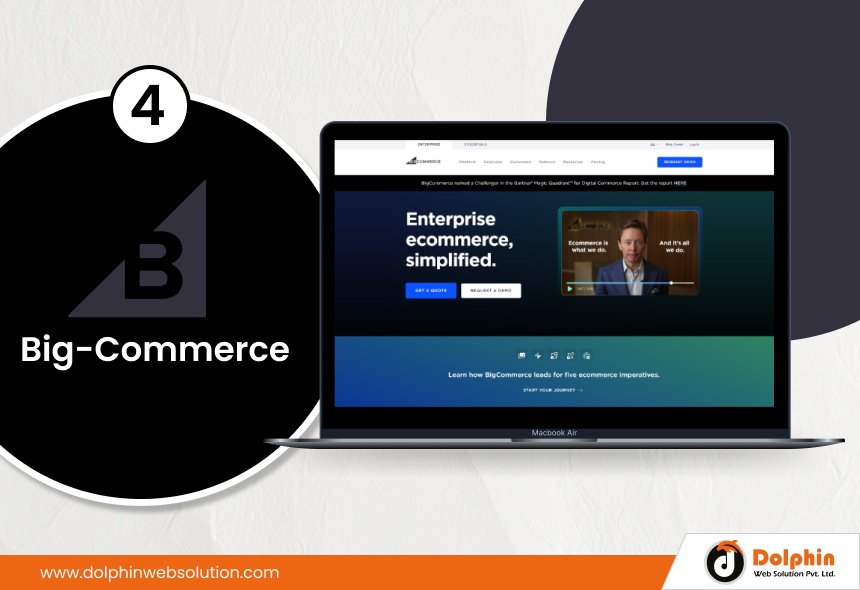
This SaaS platform comes with a strong headless eCommerce offering and flexible APIs. The core platform components of BigCommerce facilitate connection and extension to any other environment.
It has over 1000 partnered agencies,24/7 global support, quick access to marketplaces, and easy integration features. It is one of the most preferred eCommerce frameworks to launch and maintain an online store.
5. 3dcart
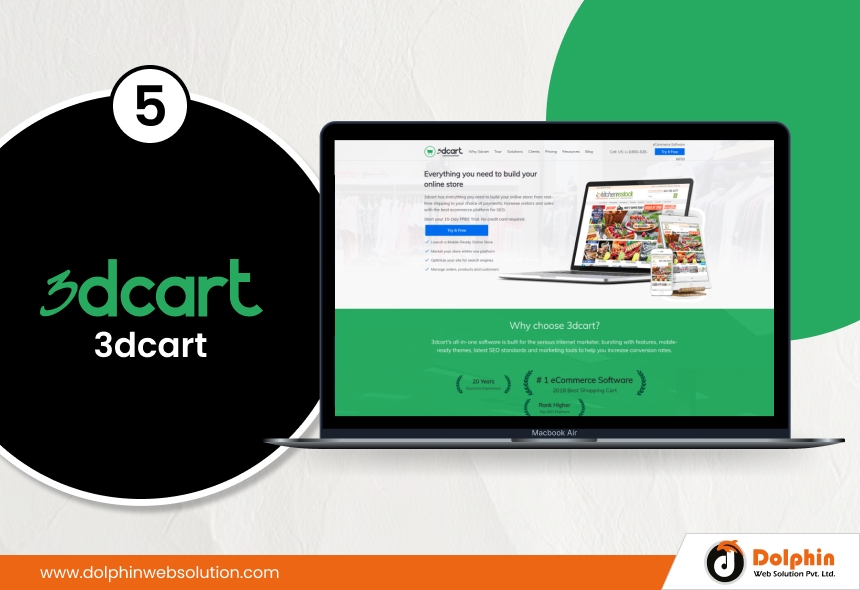
This cloud-based, low-cost eCommerce platform was launched in 1977 and has become a business tool. Even though it lacks advanced features in Shopify or WooCommerce, 3dcart offers great mobile-responsive layouts and affordable features, making it incredibly popular.
It has 160+ payment methods and multiple SEO capabilities to boost your site’s exposure and traffic.
6. Volusion
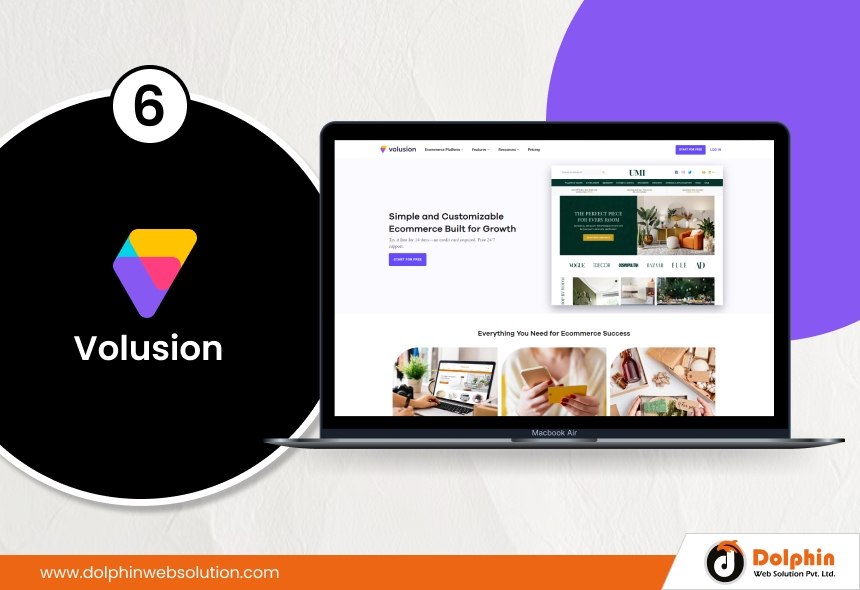
Volusion has been one of the primary platforms in the SaaS eCommerce framework. It has been operating since 2000 and has served various eCommerce giants in setting up their online stores.
It offers a composed architecture with a shopping cart solution to eCommerce business owners. It has an ideal blend of marketing tools and core commerce to be a one-stop solution for startups and beginners.
7. Squarespace Commerce
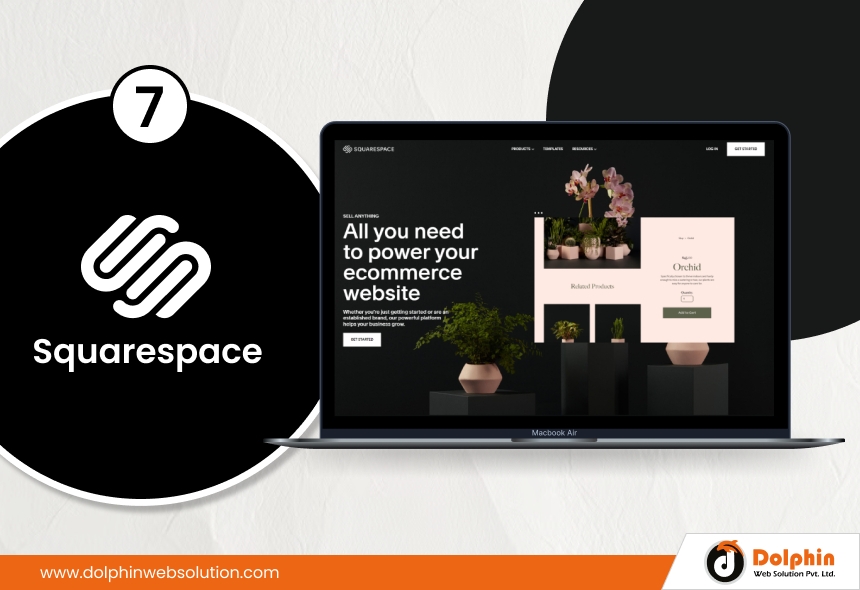
The Squarespace Commerce framework enables simple and quick website management without the need for third-party designers or developers. It includes built-in inventory tools and responsive website templates.
However, you need to do a run-through first with all the functionalities and features so you don’t miss out on vital elements for setting up, managing, and scaling your eCommerce store.
8. PrestaShop
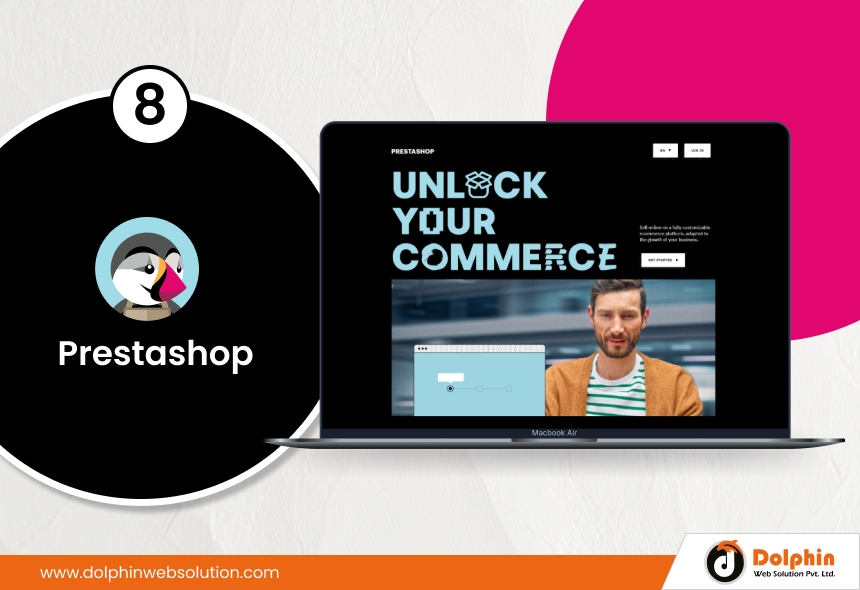
PrestaShop is another open-source eCommerce platform that improves flexibility and allows you to add modules to your application or website.
PrestaShop has over 5000+ modules and 600 features, some of which may cost extra. PrestaShop also delivers a fully managed solution with hosting and maintenance that is ideal if you are not tech-savvy.
It offers thousands of add-ons and modules for enhanced functionality. You will also get over 3000 mobile-optimized templates. It also provides marketing tools and integrated SEO. Another benefit of using PrestaShop is multi-currency support.
9. nopCommerce
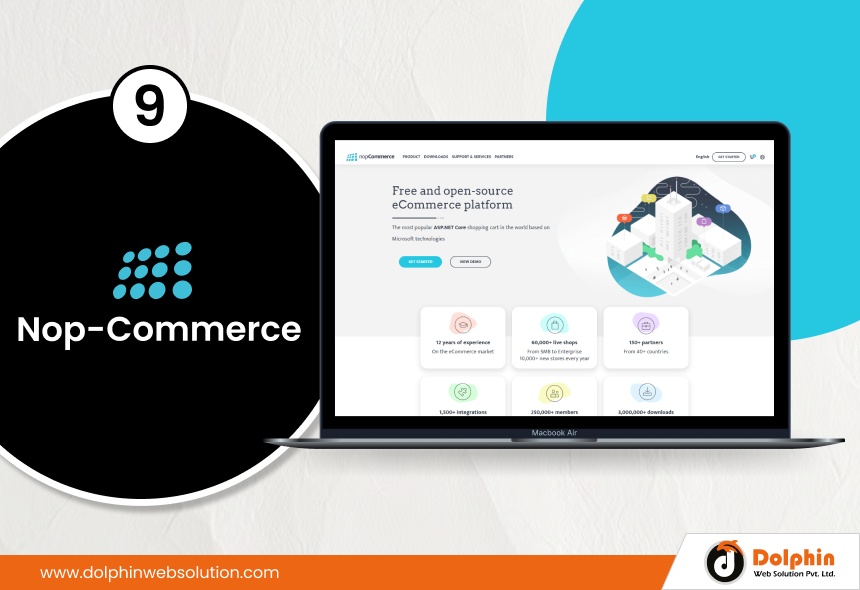
Nopcommerce is an open-source platform that is customizable and affordable. It has various mobile-friendly features and multiple built-in SEO features to improve your site’s ranking on SERPs and the web. It also offers multi-store management functionality and is highly secure.
It is one of the top choices of eCommerce businesses owing to its security and scalability features.
10. Big Cartel
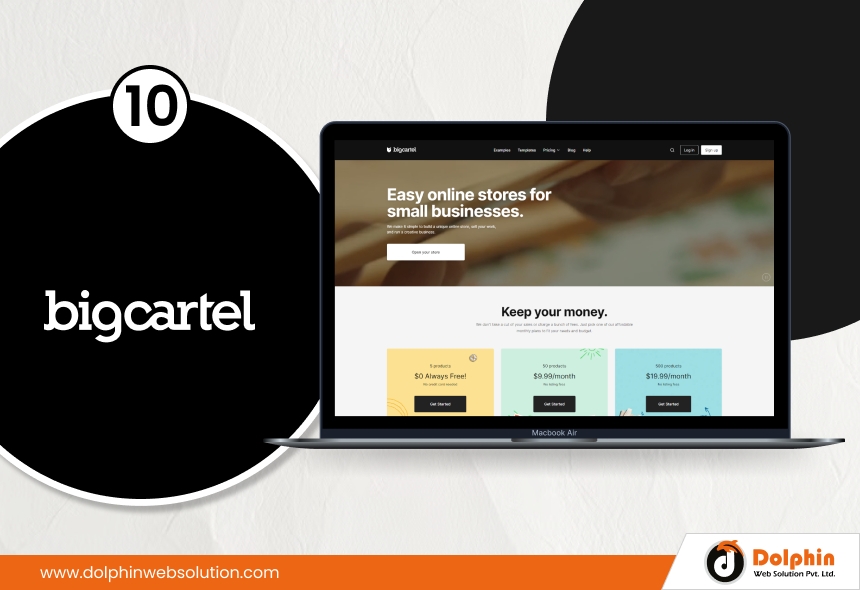
Established in 2005, Big Cartel has become a top choice for independent artists and small enterprises. It is ideal for people with little eCommerce experience.
Big Cartel offers multiple configurable themes completely optimized for mobile devices and desktops. This allows businesses to build professional-looking stores without having much technical knowledge.
Conclusion
We have outlined the most popular types of eCommerce frameworks to help you choose an eCommerce platform that best suits your business needs. The eCommerce platform will create a scalable, agile online store that offers a great shopping experience. Now that you are familiar with the functionalities, pros, and cons of the top eCommerce platforms, you can make an informed choice.

